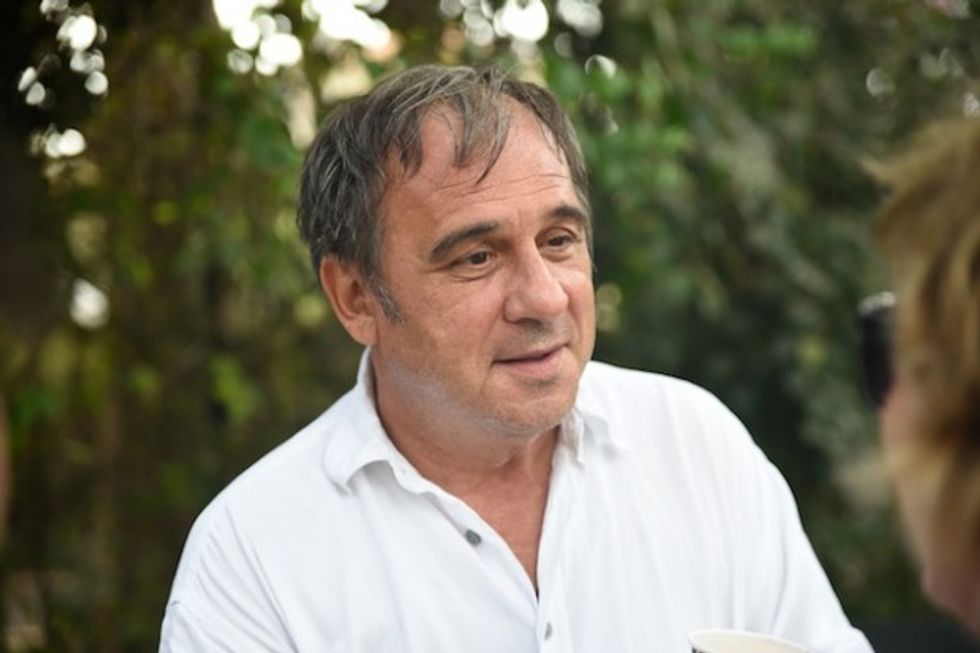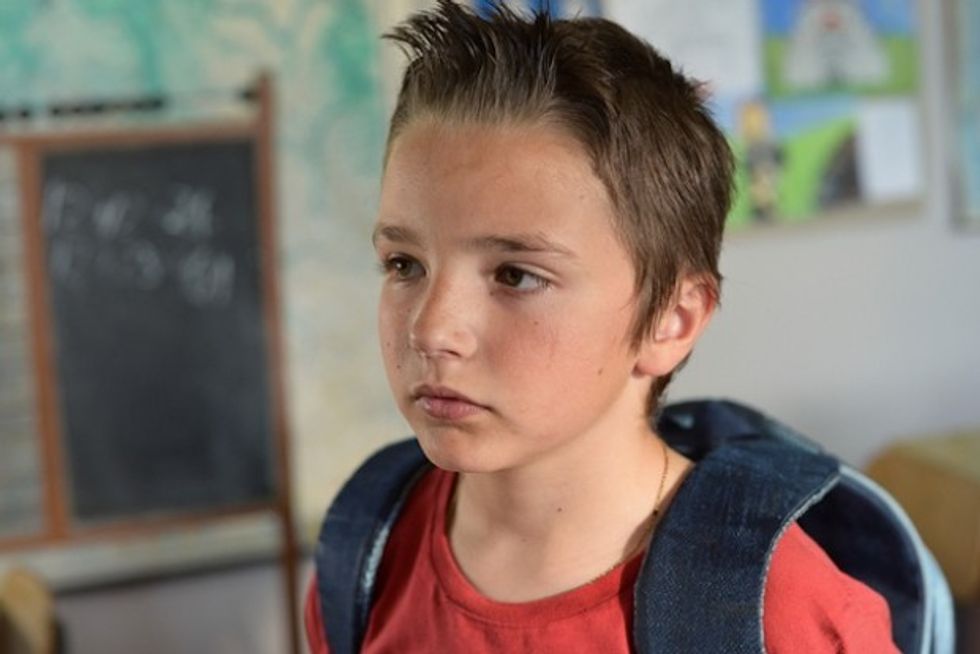
Filmmaker Goran Radovanovic says he wants the world to learn about Kosovo’s Serbian Christian minority, the “marginal people that nobody wants to see.” (Photo courtesy: Galit Rosen/Haifa Film Festival)\n

HAIFA, Israel — Like most of his friends growing up in what used to be Yugoslavia, Goran Radovanovic was raised a communist.
But at the age of 40, the Serbian film director felt the inexplicable urge to be baptized a Christian and thus return to the Orthodox Christian roots of his grandparents.
“I felt this necessity to live a spiritual life, because I only had an emotional life and physical life, not spiritual and it was missing. … I needed it desperately like water, this spiritual life,” Radovanovic recalled.
Connecting with his family's Christian past was one of the drives that guided him to write and direct “Enclave,” a film that dramatizes the suffering of the persecuted Christian Serb minority in Muslim-majority Kosovo — a minority still trapped in small communities 16 years after the NATO bombing of his country.
“It’s an untold story of marginal people that nobody wants to see, and this is also the absurdity that in the 21st century, people are living in such unbelievable conditions,” Radovanovic told TheBlaze in an interview at this week’s Haifa Film Festival where he screened his new production.

Offering insights not usually heard in the entertainment industry, Radovanovic shared his views about the loss of Christian values in Europe, anti-Serb media bias and radical Islamists' exploitation of children.
While the Western media focus on Syria’s persecuted Christians and Muslim migrants flocking to Europe, Kosovo’s Christians in the heart of Europe have been practically forgotten. A simple Google search of the phrase "Kosovo Serbs" reveals the dearth of reporting on this overlooked community. That's an information gap Radovanovic would like "Enclave" to fill.
The film, which was tapped as Serbia’s submission for the 2016 Academy Awards in the best foreign language film category, follows 10-year-old Nenad, who lives with his father and grandfather in a Christian enclave between Muslim communities. He’s the only boy in his school, has no friends his age and must be driven for his own protection in a NATO peacekeepers’ armored vehicle that is regularly stoned by Kosovar Albanian boys.
“Enclave” has unique resonance today, given the hundreds of thousands of migrants from the Middle East and elsewhere seeking a new home in Europe, creating public policy challenges and raising questions about the demographic future of the continent.
Despite his own traumatic past — surviving 78 days of the U.S.-led bombing of Belgrade — Radovanovic said he believes that ethnic groups can coexist and that Europeans should be guided by the Christian spirit of generosity.
At the same time, he lamented the loss of Christian values in European society.
“We all fear the Muslim people will come to our Christian countries," he said. "They’ll remain Muslims and we’ll lose our identity, but it’s wrong because we don’t have anymore Christian identity in the Western world. We’re not Christians anymore."

“We’re counting the time according to the birth of our Lord Jesus Christ, and we have Sunday [when] we’re not working, but in our hearts we’re not Christians for a long time,” he said. “We don’t have a real Christian identity, spiritual identity. If we were Christians we wouldn’t have questioned this problem; we would have embraced the refugees. If we would be real Christians, our spirit would conquer, because the Christian spirit is the most powerful one.”
“We wouldn’t ask, ‘Oh, [Muslim migrants] have 12 children in a family,'" he added. "It wouldn’t be a problem for a Christian believer."
Through the world of the enclave he created onscreen, Radovanovic fills a void left by Western media that have all but ignored the Christian Serbs who remained in Kosovo following the 1999 bombing campaign. More than 200,000 Kosovo Serbs fled their homes, never to return.
The director to this day blames the media for anti-Serb bias which he believes fueled NATO’s decision to back Kosovo’s Muslim leadership.
“My family was bombed 78 days and there were no journalists from the Western media who would cover people suffering in Belgrade or the Serbs in Kosovo,” he said. “They took a side. It’s not journalism; it’s politics.”
His experience made him skeptical about journalistic objectivity.
“It’s a sad story about journalism globally because I’m the victim of this information and about these reports of the Western media," he said, adding that "the Serbs were described from the beginning as black sheep, bad guys."
That sentiment is prevalent in Israel, where many feel Western media favor the Palestinian narrative. Radovanovic sees parallels between “Enclave” and the Palestinian-Israeli conflict.
“The whole metaphor for the Middle East is that they use and misuse the kids in brutal situations,” he said, describing how Palestinians “use the kids on front lines to provoke the [Israeli] soldiers.”
The filmmaker said Israel offers an important example for the Serbian people, because the Jewish people were able to survive more than 2,000 years of exile without a country and still maintained their faith.
“We lived for 500 years under Ottoman occupation and we still remained Christians," he said, adding that "there’s a kind of parallel history."
Asked if his faith guides his filmmaking, Radovanovic said that while he naturally brings his Orthodox Christian background into his films, including messages of redemption and peace, ultimately he hopes to convey a universal message that will stand the test of time.
“I’m just an artist who tries to live in eternity,” he said.
Look for U.S. screening updates in the coming weeks at enklavafilm.com.